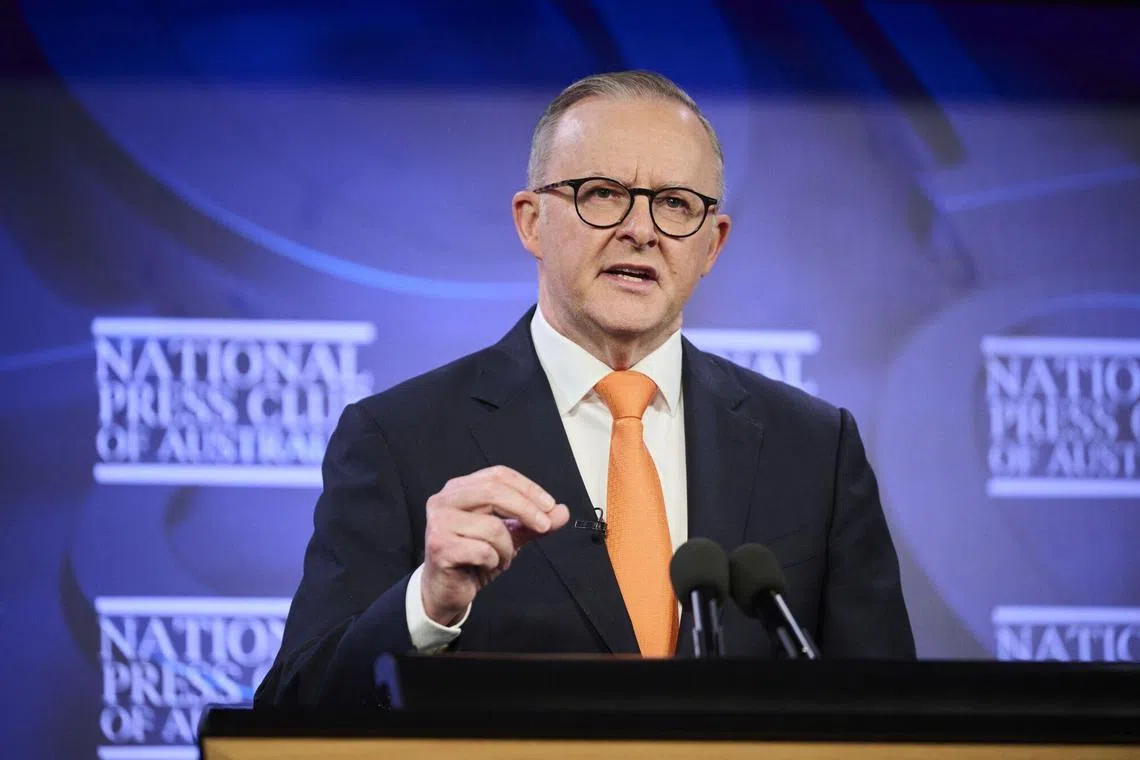Australian government reshapes tax cuts to woo low-income voters, rejects inflation risks
Sign up now: Get insights on Asia's fast-moving developments

Australian Prime Minister Anthony Albanese said the Treasury has informed the government the revised tax breaks would not stoke inflation.
PHOTO: BLOOMBERG
SYDNEY – Australia’s centre-left Labor government on Jan 25 made changes to planned tax cuts,
Under the new policy, people earning up to A$135,000 (S$119,000) will fall into lower tax brackets from July 1.
Tax breaks for some high-income earners will be nearly halved, with the savings redirected to those on low incomes.
“Our government will deliver a tax cut for every single Australian taxpayer. All 13.6 million taxpayers, not just some. Everyone who works and who pays tax will benefit,” Prime Minister Anthony Albanese said in a speech.
“This is a plan for middle Australians that delivers for every Australian taxpayer right up and down the income ladder.”
Addressing concerns the move could add to price pressures, Mr Albanese said the Treasury has informed the government the revised tax breaks would not stoke inflation, with the policy being broadly revenue-neutral and supporting jobs.
Treasurer Jim Chalmers has discussed the changes with Ms Michele Bullock, governor of the Reserve Bank of Australia, who expects there would be no implications from the tax changes on the central bank’s inflation forecast, Mr Albanese added.
Opposition leader Peter Dutton said Mr Albanese had “completely and utterly destroyed his credibility” for breaking an election pledge that he would not modify the tax policy which was legislated by the previous government in 2019.
“The Australian public won’t support a liar as prime minister,” Mr Dutton told radio station 2GB.
Mr Albanese defended the shift in policy, saying more people, especially those in low-income groups, would benefit.
A person on an average income of about A$73,000 will get a tax cut of A$1,504, which is A$804 more than prior estimates.
Australian households are under broad financial pressure from high inflation, which spiked as high as 7.8 per cent in December 2022 before slowing to 5.4 per cent in the third quarter of the financial year.
That has dented Mr Albanese’s ratings since his 2022 election win. Two polls out in December 2023 showed that his disapproval ratings outstripped his approval numbers. REUTERS


